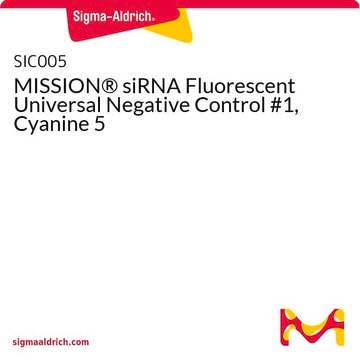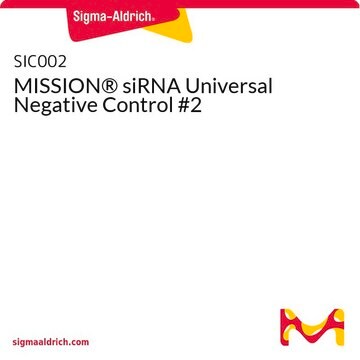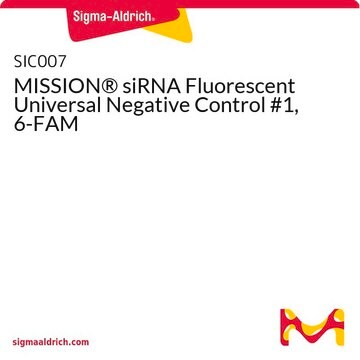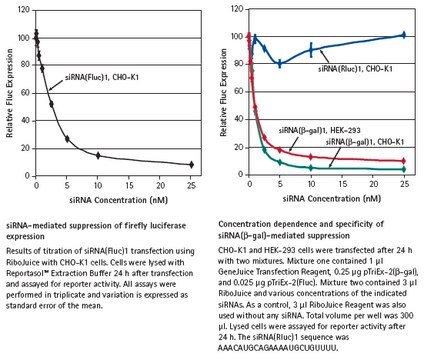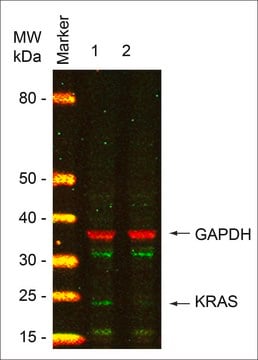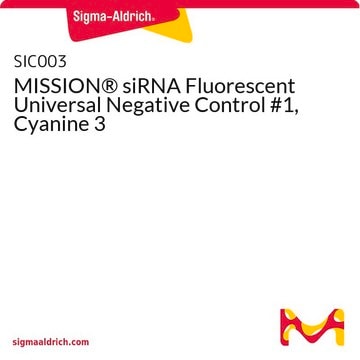S1452
MISSION® siRNA Transfection Reagent
Sinónimos:
MISSION® siRNA Transfection Reagent
About This Item
Productos recomendados
General description
Effective gene silencing and reduced off target effects are achieved using a low siRNA concentration (1nM). The siRNA Transfection Reagent is provided as a sterile solution, and is compatible with serum and antibiotics.
Other Notes
Legal Information
related product
signalword
Warning
hcodes
Hazard Classifications
Flam. Liq. 3
Storage Class
3 - Flammable liquids
wgk_germany
WGK 3
flash_point_f
120.2 °F
flash_point_c
49 °C
Certificados de análisis (COA)
Busque Certificados de análisis (COA) introduciendo el número de lote del producto. Los números de lote se encuentran en la etiqueta del producto después de las palabras «Lot» o «Batch»
¿Ya tiene este producto?
Encuentre la documentación para los productos que ha comprado recientemente en la Biblioteca de documentos.
Los clientes también vieron
Artículos
This brief webinar provides an overview of what transfection is and the methods that are used to introduce DNA or RNA into eukaryotic cells.
Contenido relacionado
Browse our convenient transfection reagent selection guide to match the best reagent for your specific cell line and application needs.
Browse our convenient transfection reagent selection guide to match the best reagent for your specific cell line and application needs.
Browse our convenient transfection reagent selection guide to match the best reagent for your specific cell line and application needs.
Browse our convenient transfection reagent selection guide to match the best reagent for your specific cell line and application needs.
Nuestro equipo de científicos tiene experiencia en todas las áreas de investigación: Ciencias de la vida, Ciencia de los materiales, Síntesis química, Cromatografía, Analítica y muchas otras.
Póngase en contacto con el Servicio técnico


